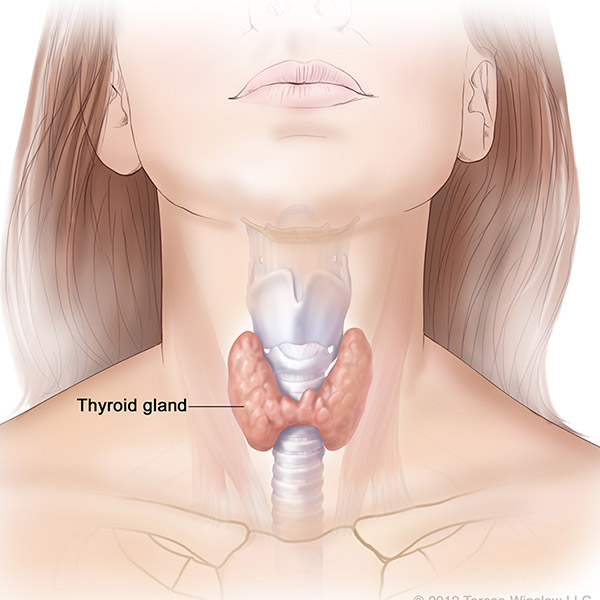
The human body is an incredibly balanced machine. There are several organs which play important roles and one of the most critical is the thyroid gland. Although the thyroid is a relatively small piece of our anatomy, it can have a massive impact upon our health. So, what is the purpose of the thyroid gland and what effects does it have? What might happen if the thyroid is no longer functioning as it should? Whether you suspect that you may be suffering from a thyroid issue or you simply wish to learn more, the details found below should prove to be quite interesting.
What is the Purpose of the Thyroid Gland?
The thyroid gland is heavily involved in controlling the metablolic rate of your body. It is therefore responsible for many internal processes which we often take for granted including:
- Heart rate
- Digestion
- Appetite
- Brain development
- Mental health
- Body mass
The thyroid functions by absorbing iodine from the foods that we eat. It then utilises this iodine to produce several important hormones (known in the medical community as thyroxine and triiodothyronine).
Although this internal powerhouse essentially functions “behind the scenes”, its importance cannot be overstated. This is why even small imbalances with thyroid-related hormones can have surprising impacts upon our overall health.
What Problems May be Encountered with the Thyroid?
Much like any other organ, there can be times when the thyroid gland does not function as it should. As the thyroid is part of the larger endocrine system, individuals will often notice metabolic changes depending upon the exact condition. Here are four common thyroid problems:
- An overactive thyroid (hyperthyroidism).
- An underactive thyroid (hypothyroidism).
- Hashimoto’s thyroiditis (a common cause of an underactive thyroid).
- Graves’ disease (often linked to an overactive thyroid).
Each of these conditions can result in very noticeable metabolic changes and medications will often be required in order to restore balance to the body. For example, those who have been diagnosed with an underactive thyroid will experience symptoms such as fatigue, decreased appetite, weight gain, a slower heart rate, and muscular weakness.
Anyone who suffers from hyperthyroidism (an overactive gland) is likely to notice opposite symptoms. These can include irritability, difficulty sleeping, anxiety, weight loss, increased sweating, noticeably lighter menstrual periods, and a bulging of the eyes.
Another possible issue is that the symptoms outlined above can lead to other health problems if they are not successfully diagnosed and treated. This is why anyone who believes that their thyroid is not functioning properly should make it a point to speak with a medical professional or an endocrinologist.
How Can Issues be Treated?
The vast majority of thyroid problems can be effectively treated with certain medications alongside proactive lifestyle changes. For example, patients who have been diagnosed with hyperthyroidism may be prescribed medications such as Tapazole. Anyone who is suffering from an underactive thyroid could instead benefit from taking alternatives including Cytomel (more details can be found here: https://internationalpharmacy.com/products/cytomel-tabs-liothyronine). Moderating or changing one’s dietary intake of iodine can also play a role, as this is the primary substance associated with the thyroid gland.
We can now see that the thyroid gland plays a pivotal role in terms of our health and well-being. Unfortunately, some individuals may eventually encounter problems. Seeking the advice of a medical professional is therefore essential in order to discover the root issue as well as to be provided with targeted treatment options at an early stage.